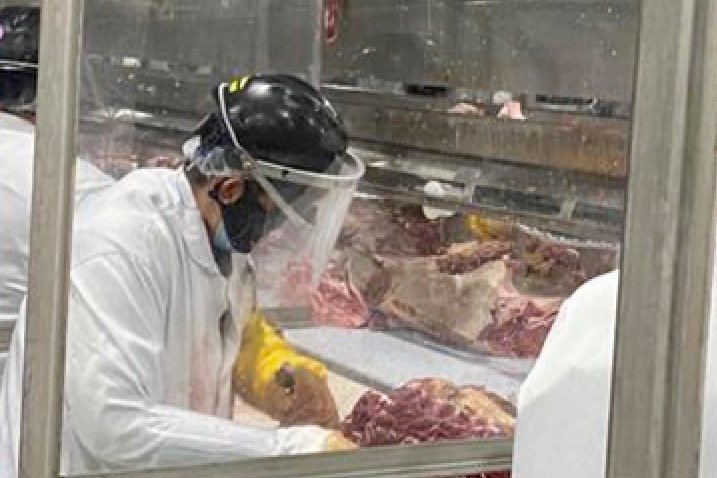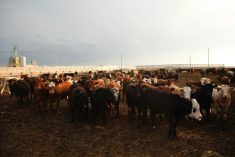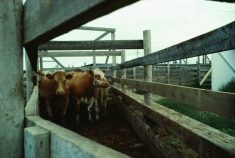Meat giant JBS’s Alberta beef packing plant has resumed two daily shifts as of Thursday, as fewer than a dozen of its 2,600-plus employees are now sidelined by COVID-19.
The JBS plant at Brooks, about 170 km east of Calgary, is “slowly returning to two shifts as of today,” the company said Thursday in a statement.
The Brazilian company’s Canadian arm, which cut operations at Brooks back to one shift last month after a major COVID outbreak among employees, emphasized resuming two shifts “will not increase the number of employees in the facility at any one time” and “all mitigation strategies remain in place” at the site.
Read Also

Alberta crop conditions improve: report
Varied precipitation and warm temperatures were generally beneficial for crop development across Alberta during the week ended July 8, according to the latest provincial crop report released July 11.
As of Wednesday, the JBS Brooks workforce included 11 “active” cases of illness from COVID-19, down from 44 a week earlier, provincial health officials said.
Another 638 employees at the plant who were previously sickened by COVID are deemed to have recovered as of Wednesday, and one worker died from the disease.
The severity of the COVID-19 outbreak in Brooks led provincial officials to take a “more gradual” approach to relaunching public activity in that community. Where other communities began reopening last week, provincial restrictions were extended at Brooks, and in Calgary, by an extra 10 days due to relatively higher COVID caseloads.
The JBS plant at Brooks and Cargill’s beef packing plant at High River, about 65 km south of Calgary, have now both resumed the second shifts they halted last month due to COVID-19 outbreaks.
According to the Canadian Cattlemen’s Association, the Brooks and High River plants combined represent about 70 per cent of Canada’s federally inspected beef processing. The JBS plant alone is estimated to handle about 3,800 cattle per day at full capacity.
The CCA on May 5 estimated Canada’s cattle sector stood to lose about $500 million by June on market-ready animals alone. The value of fed cattle had dropped by over $500 per head since the start of the COVID pandemic due to reduced processing capacity, the association said at the time.
‘Daily deep-cleaning’
JBS said Thursday it has “proactively identified (and) adopted more than 100 preventive measures to ensure a safe working environment for our team members” at Brooks.
Among those measures, JBS said, it’s providing face masks and face shields to be worn “at all times for operations in the facility” and has set up plexiglass “physical partitions” on its production lines.
All employees are temperature-tested before entering the facility, using hands-free thermometers and thermal imaging testing technology, the company said, adding that starts, shifts and breaks are staggered and spacing in cafeterias, break and locker rooms has been increased.
The entire facility, JBS said, is subject to “daily deep-cleaning” and some staff are now dedicated full-time to “continuously sanitize high-touch and -traffic areas.”
The company said it “will continue to make all decisions based on the best available data and advice from both our team members and public health officials.” — Glacier FarmMedia Network














